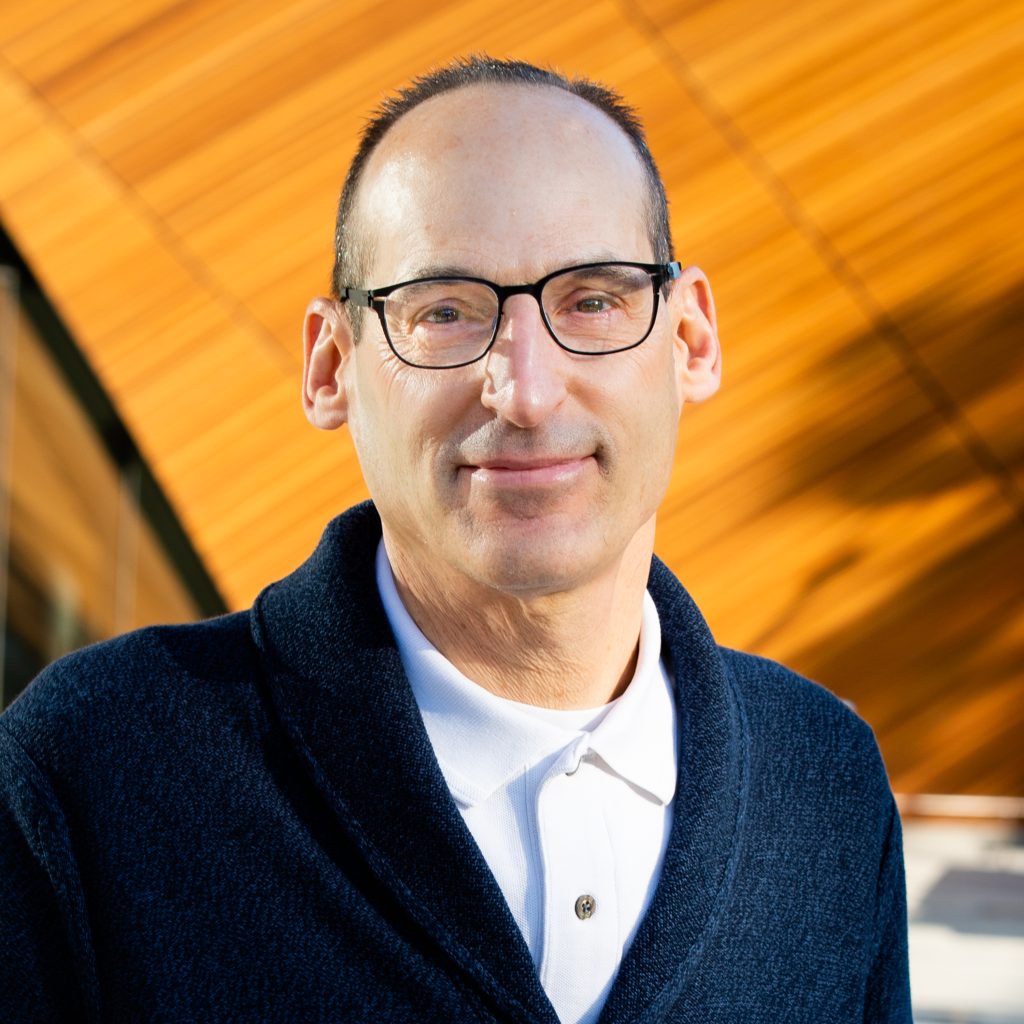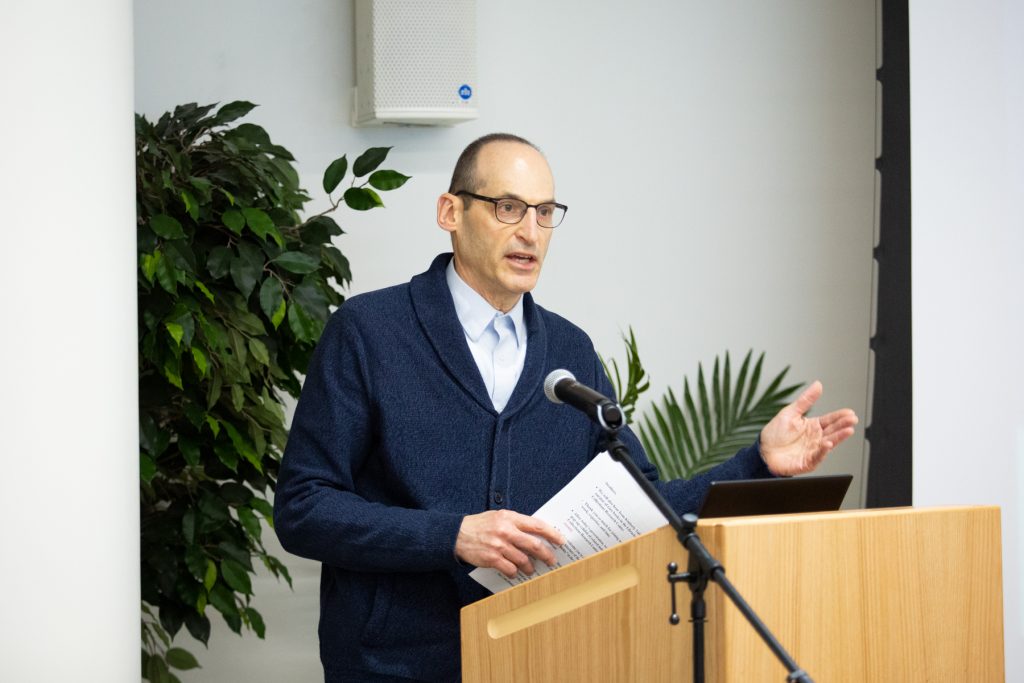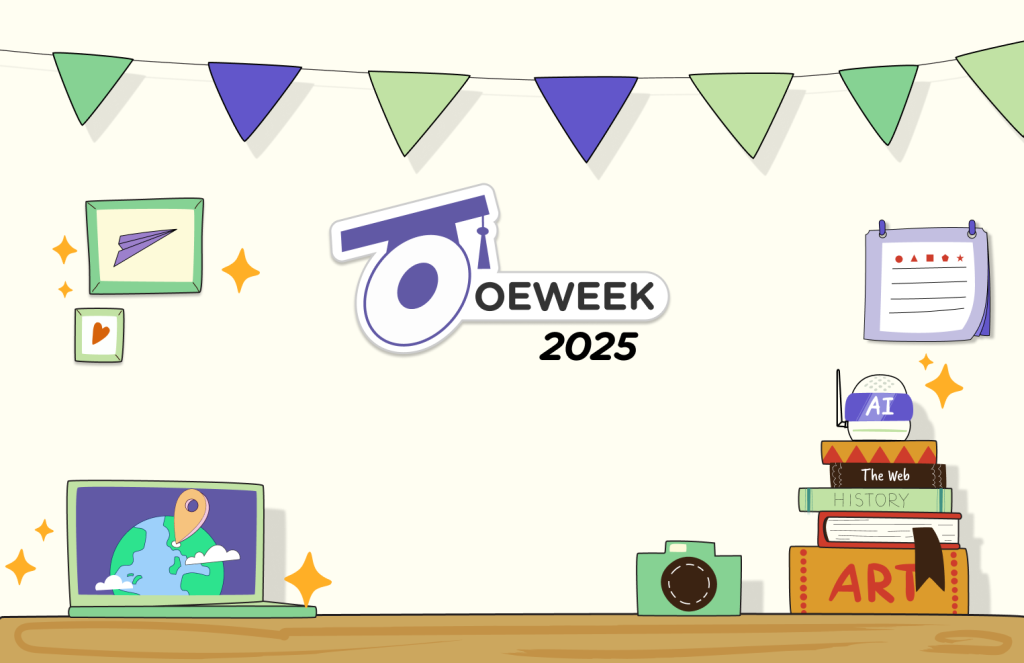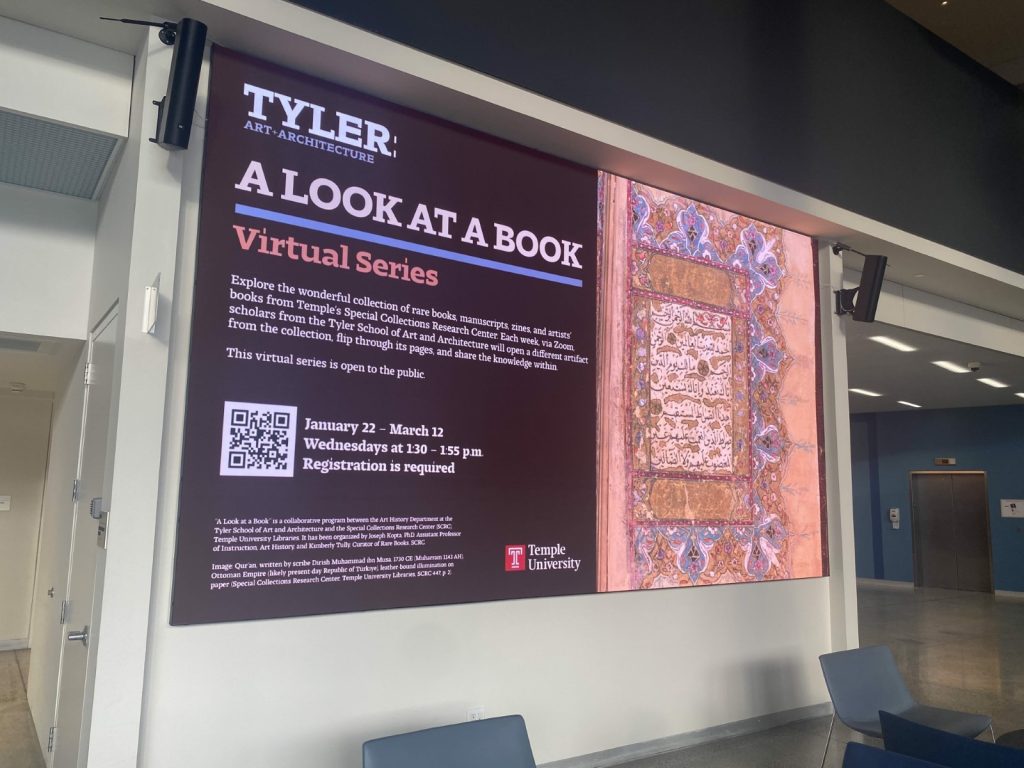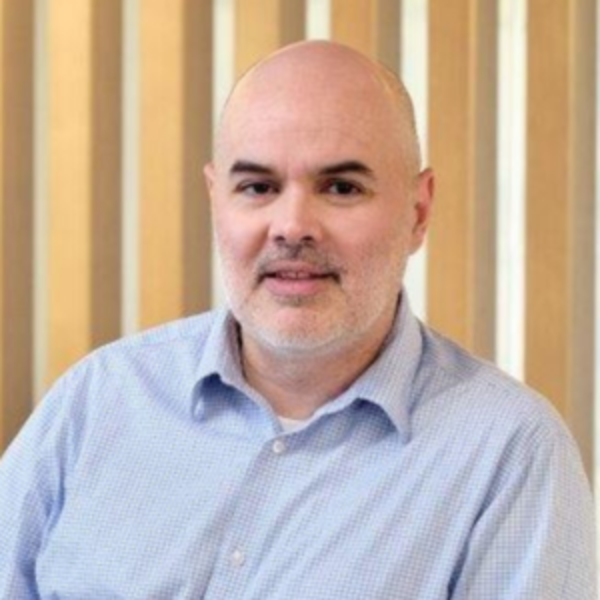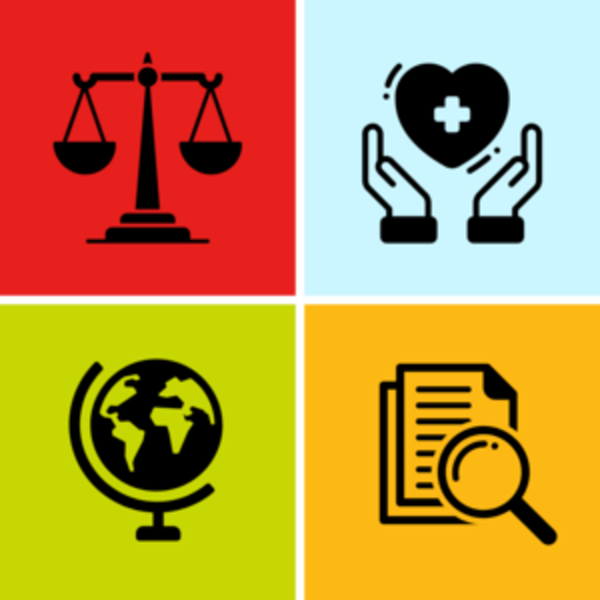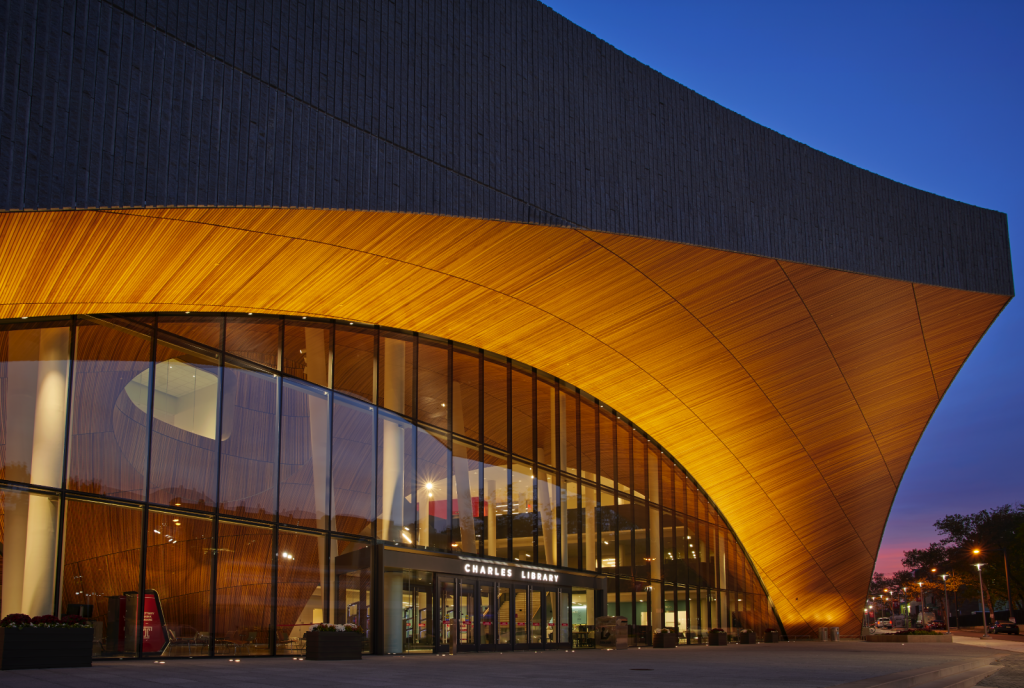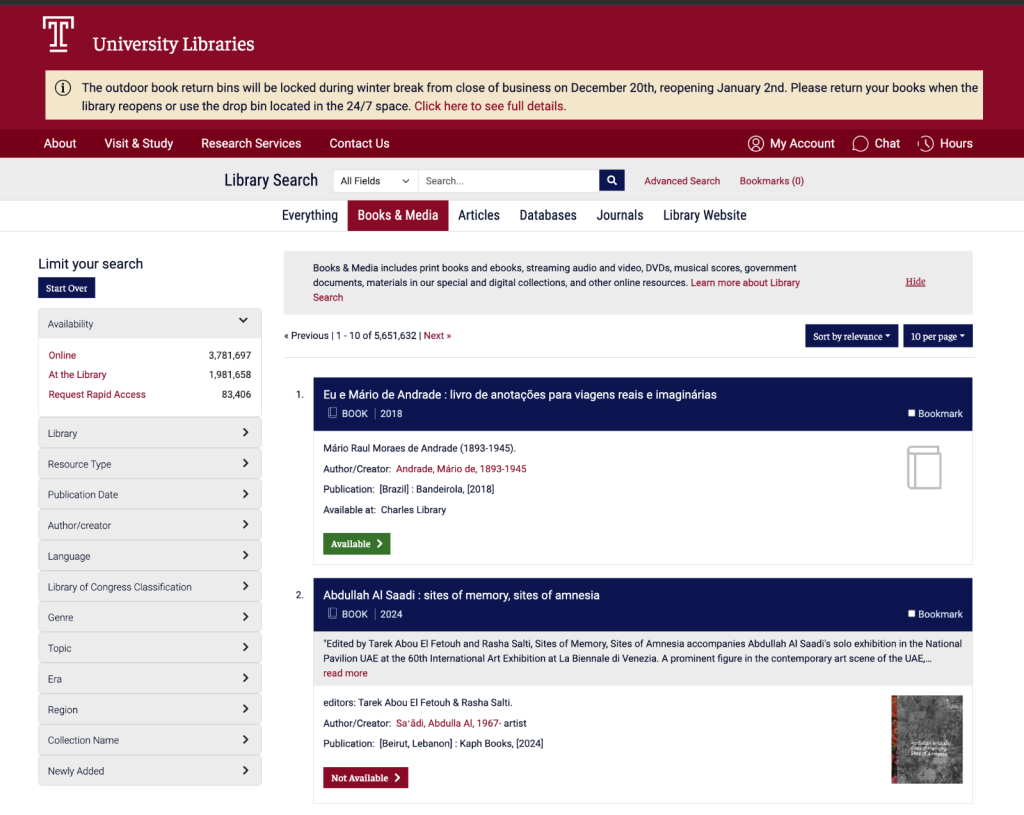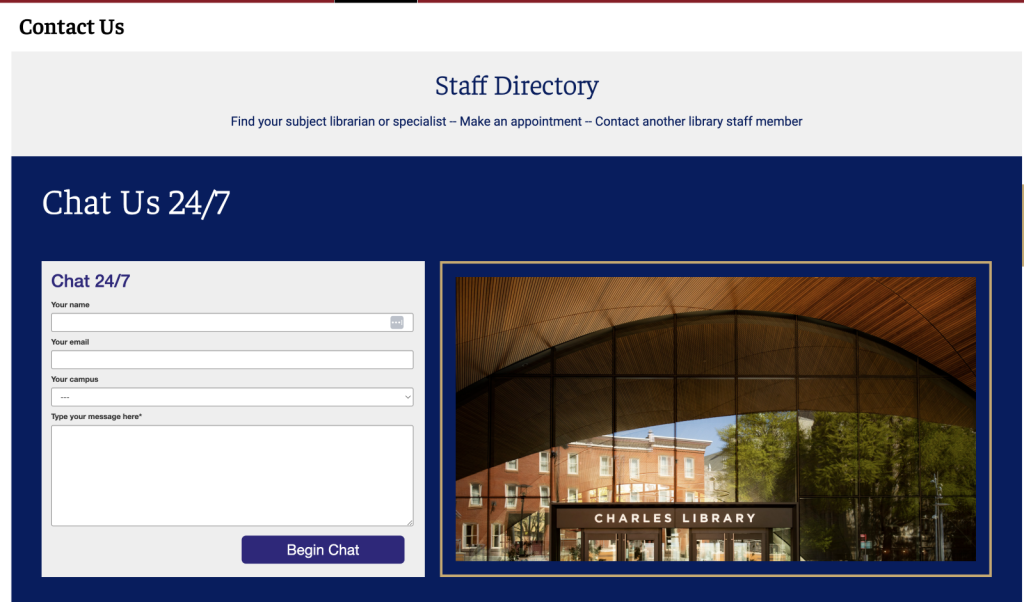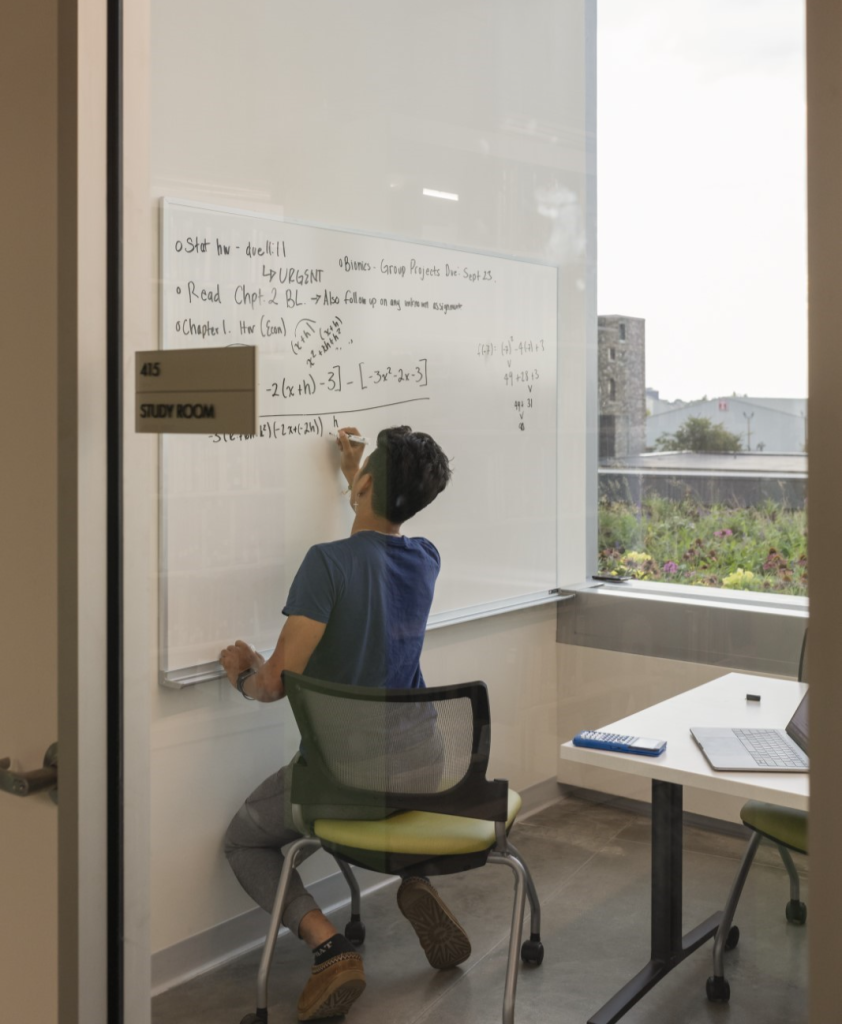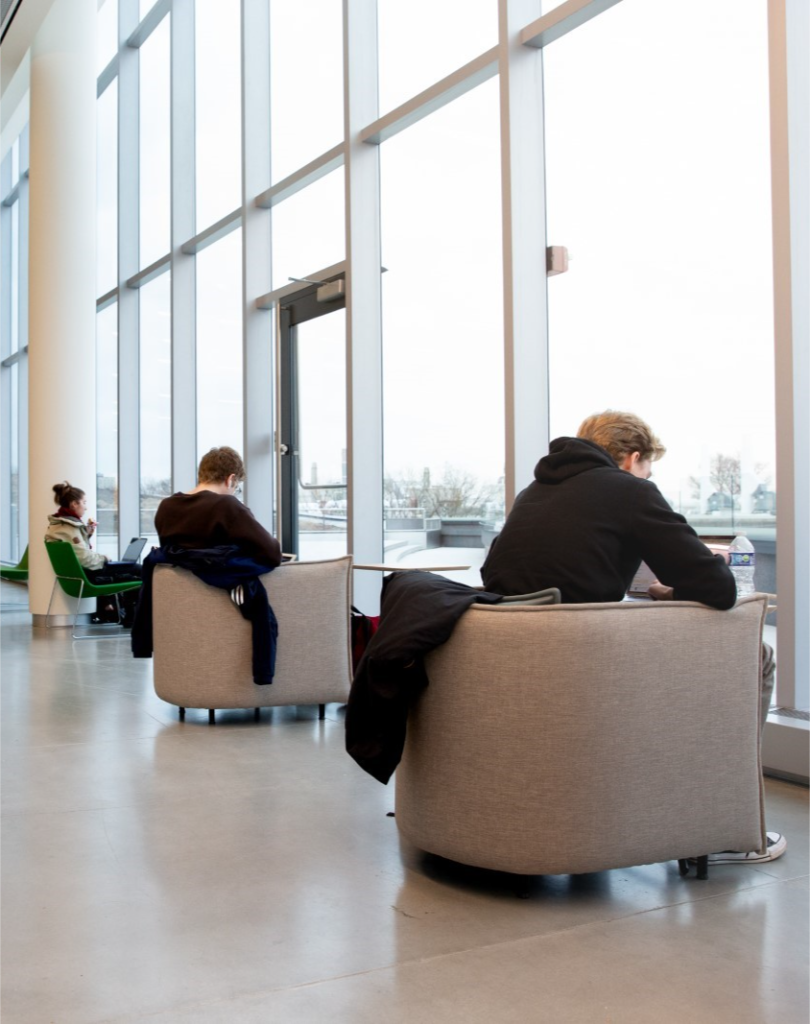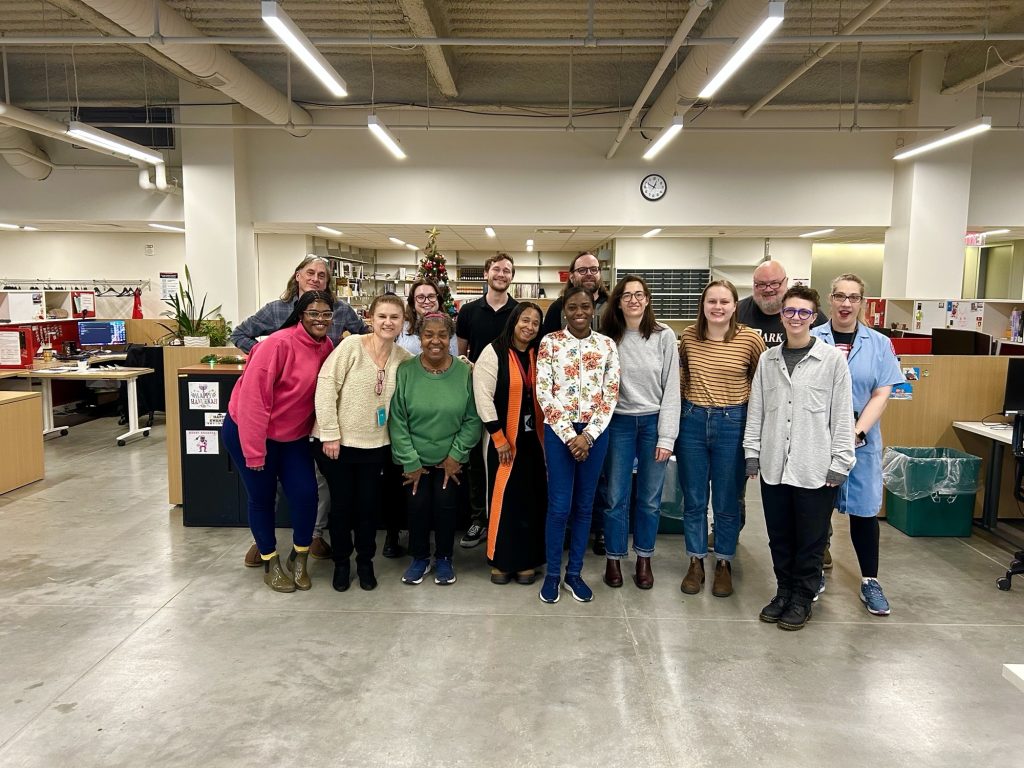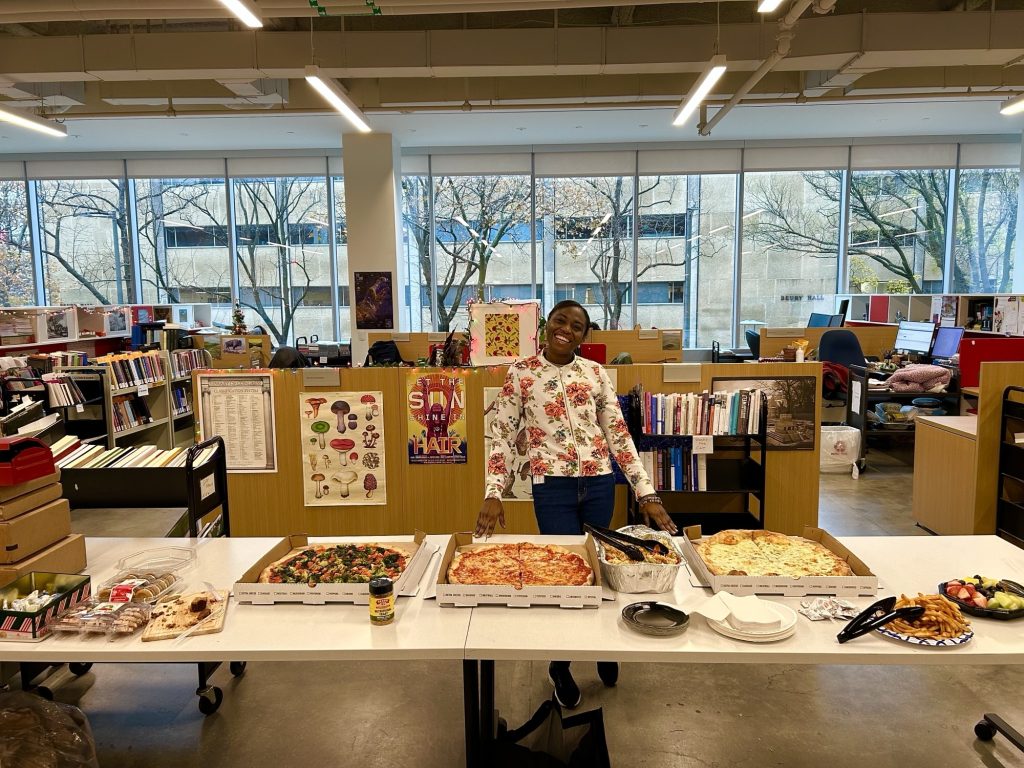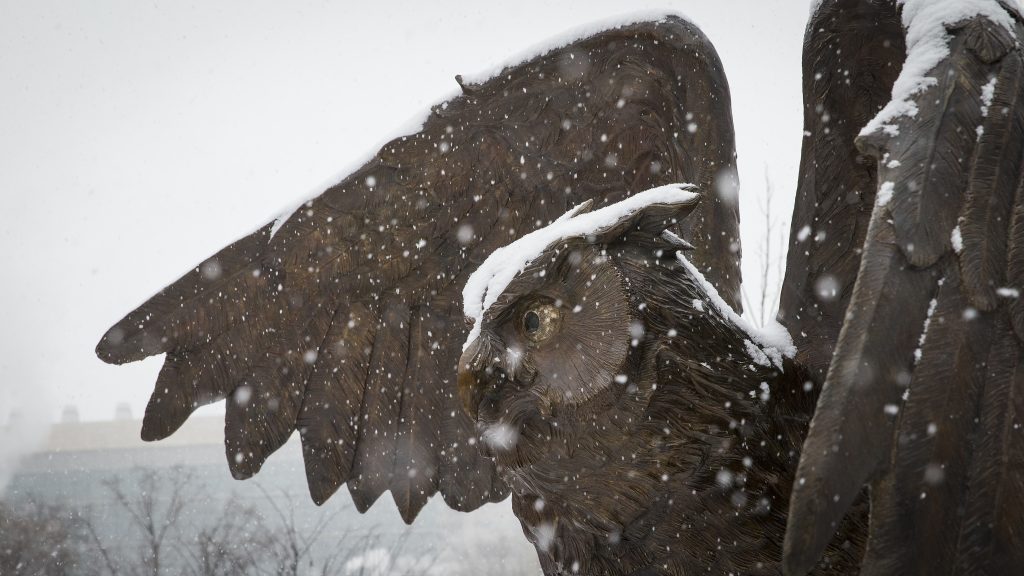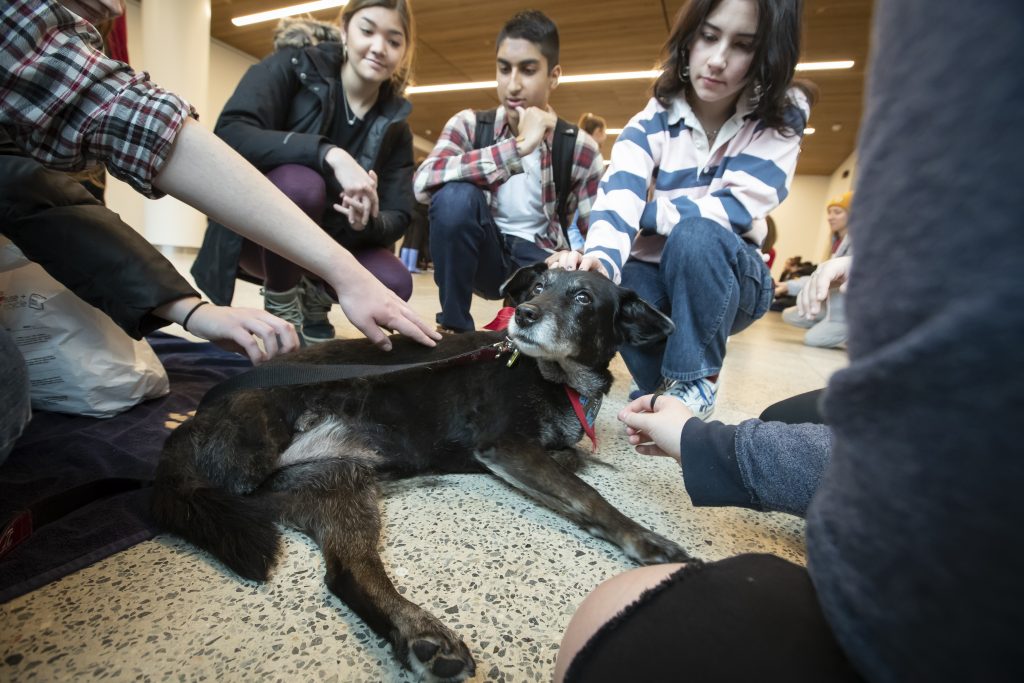
After nearly two decades of visionary leadership as Associate University Librarian, Steven Bell retired this May, capping an extraordinary career spanning over forty years in academic librarianship. Bell’s impact at Temple University Libraries has been profound and far-reaching. Since joining Temple in 2007, he has championed innovation and student success—leading the university’s first-ever Textbook Affordability Project, pioneering initiatives for zero- and low-cost course materials, and continuously exploring ways to enhance the library user experience for the entire campus community.
Bell’s impact extends well beyond Temple. He is widely recognized as an influencer and innovator in the field, with an impressive portfolio of peer-reviewed articles, professional publications, dozens of keynote talks, presentations and workshops, professional association leadership, years as a library science educator and some well-received books to his name. His advocacy for accessible education and his commitment to empowering students and faculty have set new standards for academic libraries nationwide.
In retirement, Bell looks forward to spending more time with family, pursuing personal projects, and continuing his lifelong dedication to libraries by working part-time at his local branch.
Recently, the editor of Speaking Volumes sat down with Bell to reflect on his remarkable tenure at Temple Libraries.
Ella Lathan: What do you think has been your biggest accomplishment in your tenure at Temple?
Steven Bell: I have several accomplishments of which I’m proud to have achieved, particularly the ones that came about through collaboration with my TULUP colleagues, which is always the fun way to get things done at work. But I think our open education work is perhaps what stands as the most significant of them. Looking back, I can say it has had a lasting national impact. Temple was among the first academic libraries to make the case for dedicating staff time and financial resources to promote the value of open education resources. The innovation was a strategically designed Textbook Affordability Project to incentivize faculty to choose zero-cost learning materials over the traditional, expensive commercial textbooks that were costly for students to purchase, and which often failed to support their learning success. At that time, such programs were relatively unheard of.
This was back in 2010. Now they are commonplace in higher education, having been duplicated in hundreds of other academic libraries. In time, this early work was refined and led to new open education innovations and initiatives. For example, supporting faculty to adopt open pedagogy methods in the classroom, acquiring e-books that would support low-cost access to course materials for students, as well as getting support from other academic areas of the institution, whether it’s Academic Affairs, the Provost’s Office, or the Teaching and Learning Center. Most importantly, we raised awareness about the impact costly course materials have on students’ ability to have an affordable education. We engaged our educators, administrators and students with the idea that we can achieve learning outcomes in the absence of expensive course materials. I think it’s been most impactful, and I am proud that as an institution we’ve supported this initiative over the years. It’s especially gratifying to have worked with outstanding colleagues in our Open Education Group, with support from Temple student government and other academic support offices. I’m really proud of the way they’re carrying on the work that we started a long time ago. I left feeling confident this work will continue and improve in ways that yield future benefits to our students and those who educate them.
EL: With all the great work you and the Open Education Group have done at Temple, how have you seen the textbook affordability initiatives change over time at the state level?
SB: At the state level, academic librarians are much more organized than in the past. Affordable Learning Pennsylvania (ALPA) has accomplished more to advance textbook affordability statewide than we could have operating as independent institutions with no or little knowledge of what was going on elsewhere. A statewide effort created the opportunity for librarians and faculty to learn from each other. The team that started ALPA recognized that while some colleges and universities had the resources to initiate these kinds of programs, many others did not. They may have lacked the necessary staffing, know-how or other resources to get an initiative started on their own campus. ALPA was designed to spread expertise and level the playing field. Through professional development programs and an annual summit, ALPA kickstarted statewide cooperative information sharing and programming. I’m proud of my participation in ALPA’s leadership team, but I see there’s still much work to do in Pennsylvania. We lag behind other states when it comes to the provision of dedicated, sustainable funding and administrative support for affordable learning materials. We have proven in the past that even with a small amount of funding for zero-cost learning materials, academic librarians can have a significant impact on student academic success. ALPA’s mission is to continue the work of creating awareness, educating librarians and faculty, leveraging student support and obtaining sustainable funding for affordable learning.
EL: How do you feel about your role in transforming the student experience at Temple?
SB: One of the things we’ve prioritized at Temple Libraries is the adoption of a user experience mindset. When I first arrived at Temple, at that time in academic librarianship more broadly, one of our profession’s failings is that we too frequently made decisions based on what we, the librarians, thought was best for the patron or user. In other industries, whether it was hospitality, food service, or retail, there was a mindset change to focus on the user and what their needs and expectations were – instead of what the organization assumed they needed or wanted – and then intentionally design an experience to meet or exceed those expectations. With support from our dean at the time, I initiated professional development, primarily for our public service staff members, aimed at shifting our mindset away from being staff-centered and towards adopting user-centered service design techniques. Over time, that mindset was more widely adopted in our library. For example, we eventually added a user experience librarian to focus on ascertaining how to deliver the best possible library service experience – and to assess how well we are or are not accomplishing it. I observed our library culture shifting from being transaction focused to one that is more thoughtful about building relationships with our faculty, students, and community members. It’s hard to accomplish when you have a campus of thousands of students, faculty, and researchers. Unfortunately, we lack the ability to scale up this work to build relationships with all of them. I do feel we’ve achieved a transformative user experience culture shift over time. It has contributed to the growth of a community where people are loyal to the library, where they have a memorable library experience, and they want to tell other people about it. They see the library as a destination for themselves and see there’s value in the experience that library staff design and deliver whether it’s onsite or online. Of course, being able to offer the Charles Library experience absolutely makes a difference.
EL: Do you think the construction of Charles and the project of building a 21st century library inspired you to stay at Temple?
SB: One of the reasons I originally came to Temple back in 2007 is because it sounded like an exciting time to join the team. They were already talking about renovating the Paley Library and that was going to be a significant project, At the time I thought that it would be a great experience to be involved in re-imagining library facilities for the university. Over time the concept shifted from a Paley renovation to an entirely new 21st century library building. It ended up taking another six years for the planning process to begin in 2013 – and Charles finally opened in 2019. Quite a wait but well worth it.
I came to a point in my career where it made sense to stay where I was continuing to build on my prior career accomplishments. We had a great opportunity to provide a laboratory for 21st century library services. There were constraints of one sort or another, but those limits on our resources forced us to be creative in how we think about the design and implementation of new library services.
One other thing I’d say about my experience at Temple Libraries with respect to the Charles Library that we obviously could not have imagined was the pandemic period. That happened just one year into our Charles Library experience, and it really did shake things up. It was super challenging to try to provide library services with no access to the library building for six months. It was also an interesting period for us in academic libraries in general, because we had to rethink how do we provide services when you can’t have people come to the physical library. I think we learned a lot from that about our capacity to offer access to information, educational support, instruction activity, and consultations. We really were able to leverage online technology and tools in a way that enabled us to continue to support our community, even when we didn’t have access to our physical library. It made us appreciate Charles Library’s physical space a lot more. It helped us to move forward as a library organization with a real sense of how to leverage remote technology to deliver the services. It really did change the nature of how we do our work, and how we leverage Charles as staff space. Is Charles Library why I stayed here for 18 years? Not entirely. There’s much more to what we do at Temple Libraries beyond space as a service. I certainly did want to see and experience how the facility and everything it offers would impact our community over time. I’ll continue to follow its trajectory.
EL: What do you think has been the biggest change that you’ve witnessed in librarianship?
SB: Too many to choose just one that’s the biggest of all. One of the truly big changes that has empowered library organizations to be better is the increased collaboration with organizations outside of the library. One thing we’ve done well at Temple is finding partners on the academic and disciplinary side, as well as in student services. In our relationship with colleagues in teaching and learning centers, writing centers, tutoring, advising, and even student life, academic librarians have realized you can’t provide great library services without being a great partner and finding colleagues who want to support the kind of work you’re doing and encourage it. Charles Library has certainly been incredibly popular for hosting meeting spaces and other organizations within the library – and that’s helped us build connections with partners across campus and in the broader community.
When I think of big change, technology is right near the top of the list. It’s led to enormous and significant changes in the way we work and the kinds of things that we’re able to do. One thing I thought was exciting about Charles Library and that I’ve written about is how we went into it with a mobile first mindset. What makes Charles different from academic libraries completed in the same period is that there are not loads and loads of desktop computers for students. We didn’t invest in the wiring, electrical and data infrastructure that would require; it’s designed for people who are using wireless devices. At Charles you can be anywhere in the library doing whatever it is you need to do and have access to wireless and battery power without needing a data jack or electrical outlet. With our mobile-first technology vision, we eliminated the need to constantly be wired to the network and power supply. It’s in the DNA of our operation to leverage new technologies, whether there are things that work with your browser or other kinds of plugins or extensions or technologies to enhance accessibility. Understanding and harnessing AI in productive ways is our new technology frontier.
The other big change that comes to mind is something worth mentioning again – our focus on relationship building. Those basic library transactions, be it accessing library study rooms or book borrowing, will always be important. Beyond that, we value building relationships with our Temple University community members. Those one-on-one, deeper interactions occur less often, by far, in the grand scheme of transactions of all types. But when you consider the degree of impact on users, on their ability to enable students and researchers to succeed, they are far more significant.
EL: What do you think made your 48 years as a librarian successful? What was the driving factor for you?
SB: It was always about wanting to help people. To my way of thinking, this is a helping profession. We help them learn how to do research, expand and sharpen their information discovery skills, and critically evaluate the information to which they are exposed. Over my 48 years, the amount of information, both fact and fallacy, has exploded beyond our wildest expectations. The ways in which librarians help are now more essential than any past time in my professional career.
When I started off, information was very scarce, and librarians were the go-to experts for finding and retrieving information. That activity is now much more democratized and widely accessible, which is a great thing! It used to be that just the act of searching a computer database of citations or data required an appointment with the librarian. Now our students, faculty and researchers can do this endlessly in their own time. So, the work has shifted from helping people with information discovery to assisting them to tailor their research in a way that supports good research and writing. That’s been a big change in over 48 years. What hasn’t changed is that this remains a help-based profession where we connect people with whatever it is that they need to achieve success on their terms. The reward for me is working with those who are struggling with research, exposing them to the tools and techniques they need to succeed, and then watching them be successful. What I have also enjoyed over those years was discovering myself as a researcher, author, columnist, and presenter. I like to think of myself as a student of higher education and exploring how it works and the ways in which it expands our potential has been a continuous source of inspiration for me.
EL: What’s your advice for current or aspiring librarians?
SB: What I’ve also been proud of throughout my career is serving as a library and information science instructor for graduate library science education programs at Drexel and San Jose State Universities. I’ve had the honor and privilege of teaching hundreds of aspiring librarians about different subjects such as online database research, business research, academic librarianship, and more recently, open education. What I’ve always told the students is: ‘Find out what’s going on in libraries. You need to go beyond the classroom to learn librarianship. Don’t be afraid to ask librarians questions about their work.’ I rarely have ever come across a librarian who is reluctant to discuss their work with a curious library student. I encourage current and aspiring librarians to talk about their work and what it is about it that excites, inspires, or even frustrates them. To my way of thinking that’s how you develop your passion for the profession.
There’s so much exciting work being done, whether it’s in public libraries or academic libraries. I just recently talked to an aspiring librarian, a relative of a Temple colleague, who wasn’t sure about committing to obtaining their master’s degree. We ended up having a great conversation about what is happening in the profession and where future opportunities lie. When you start to dig under the surface a bit and explore librarianship as more than just books and information, focusing instead on connecting with people, building relationships, becoming an expert in information discovery tools and techniques, that gets people excited about their professional prospects. Those who are less familiar with contemporary librarianship may not realize how our work contributes to a society that supports and enables those who are less privileged to gain access to computers and information technology. That aspect of our work is attracting all types of new people to this profession.
Another accomplishment I’m proud of in my time at Temple Libraries is our ongoing commitment to provide computers, internet access and technology education to the public. That’s become a critical part of our work, a way we support the University’s mission and a vehicle for connecting Charles Library with our community neighbors.
EL: Is there anything else that you would like to share with the readers?
SB: I’m a product of Temple University myself. My Temple education gave me the foundational skills I needed to succeed in librarianship. It felt good to come back as an employee to help others achieve their career and life aspirations – like I did. I’ve immensely enjoyed my time at Temple Libraries. I’m proud of the many, many accomplishments that resulted from working together with internal and external colleagues and constituents. I will miss being a part of what lies ahead for the Libraries but will always appreciate having had the opportunity to play a role in laying the foundation for future achievements. I hope the readers will be a part of that story through their support for and engagement with Temple Libraries. I know I will.

